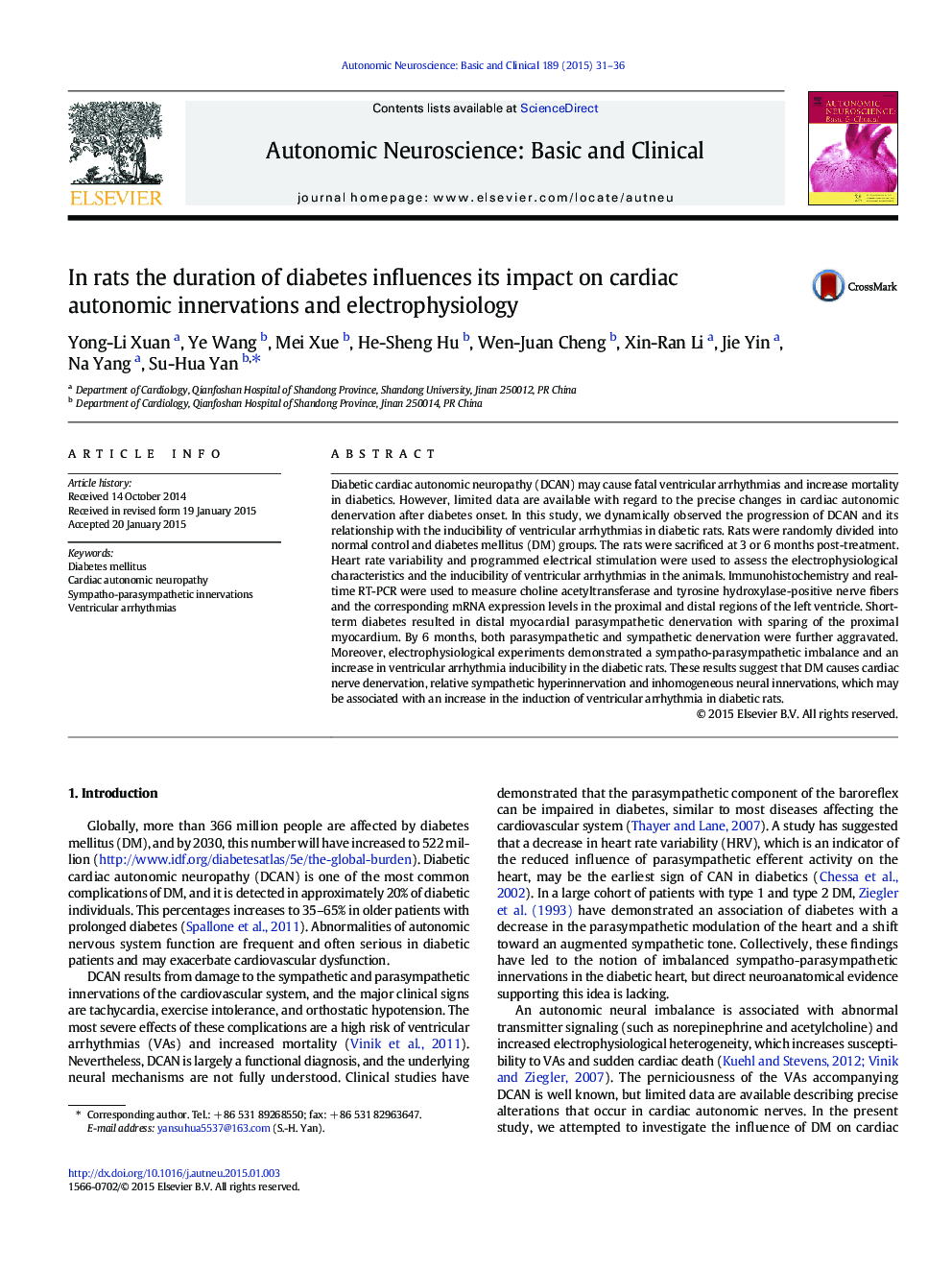| Article ID | Journal | Published Year | Pages | File Type |
|---|---|---|---|---|
| 6003948 | Autonomic Neuroscience | 2015 | 6 Pages |
â¢DM causes a time-dependent myocardial neural denervation.â¢Long-term DM causes aggravated sympatho-parasympathetic imbalance.â¢This neuroanatomical damage is associated with high ventricular arrhythmogenesis.
Diabetic cardiac autonomic neuropathy (DCAN) may cause fatal ventricular arrhythmias and increase mortality in diabetics. However, limited data are available with regard to the precise changes in cardiac autonomic denervation after diabetes onset. In this study, we dynamically observed the progression of DCAN and its relationship with the inducibility of ventricular arrhythmias in diabetic rats. Rats were randomly divided into normal control and diabetes mellitus (DM) groups. The rats were sacrificed at 3 or 6Â months post-treatment. Heart rate variability and programmed electrical stimulation were used to assess the electrophysiological characteristics and the inducibility of ventricular arrhythmias in the animals. Immunohistochemistry and real-time RT-PCR were used to measure choline acetyltransferase and tyrosine hydroxylase-positive nerve fibers and the corresponding mRNA expression levels in the proximal and distal regions of the left ventricle. Short-term diabetes resulted in distal myocardial parasympathetic denervation with sparing of the proximal myocardium. By 6Â months, both parasympathetic and sympathetic denervation were further aggravated. Moreover, electrophysiological experiments demonstrated a sympatho-parasympathetic imbalance and an increase in ventricular arrhythmia inducibility in the diabetic rats. These results suggest that DM causes cardiac nerve denervation, relative sympathetic hyperinnervation and inhomogeneous neural innervations, which may be associated with an increase in the induction of ventricular arrhythmia in diabetic rats.
